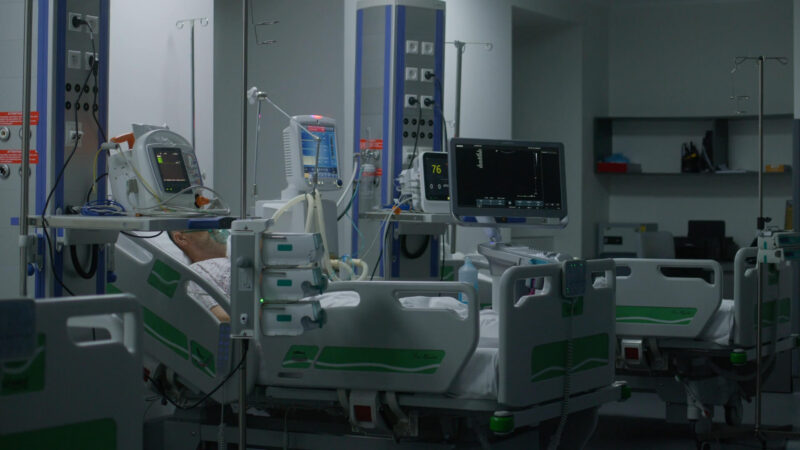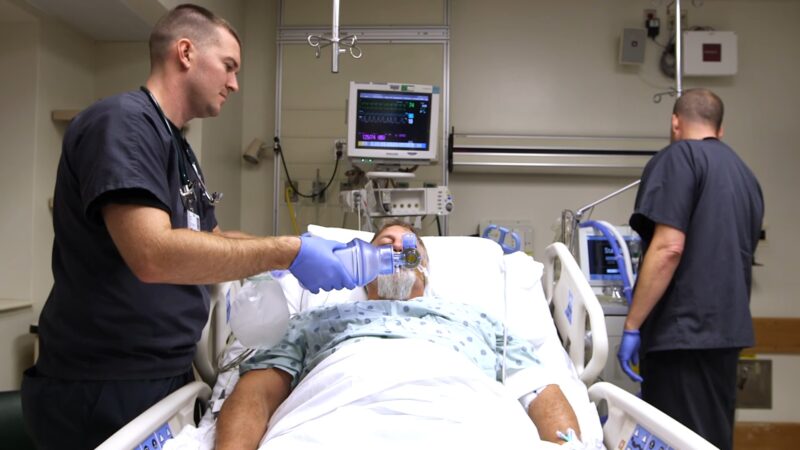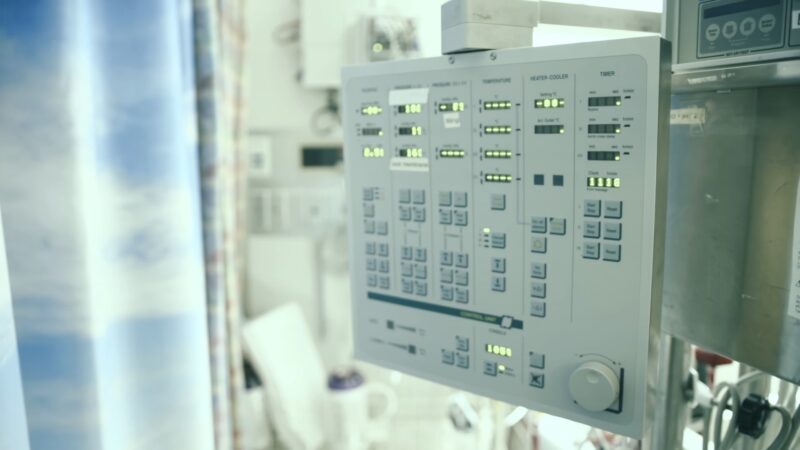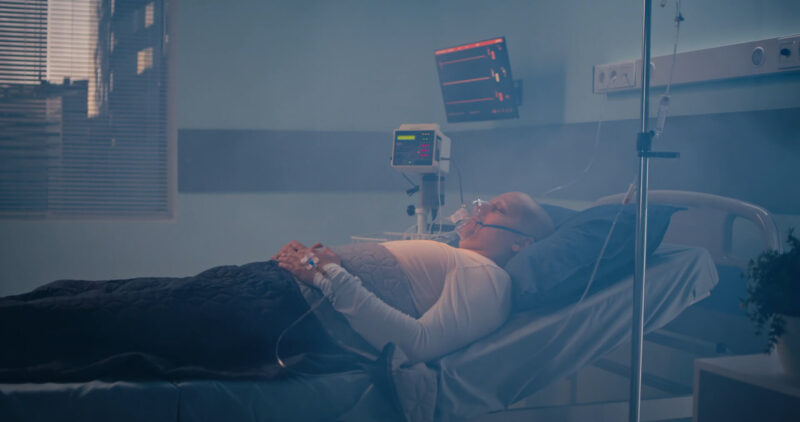Critical care represents a specialized area of medicine dedicated to the management of patients facing life-threatening injuries and illnesses.
It unfolds within the confines of an intensive care unit (ICU), where a dedicated team of health care professionals provides round-the-clock monitoring and treatment.
The essence of critical care lies in its comprehensive approach, employing advanced medical technologies and methodologies to monitor vital signs continuously and administer necessary interventions.
Key Takeaways
- Critical care is medical care for people who have life-threatening injuries and illnesses.
- It usually takes place in an intensive care unit (ICU).
- A team of specially-trained experts must provide 24-hour care.
What is the Intensive Care Unit (ICU)?

It is a specialized environment equipped with the latest medical technology and staffed by a team of professionals who specialize in critical care. The ICU’s primary function is to provide intensive monitoring, life support, and specialized care to patients who are critically ill.
Key Functions
- Continuous Monitoring: The ICU is outfitted with advanced monitoring equipment that tracks patients’ vital signs and physiological functions 24/7. This constant vigilance is crucial for detecting subtle changes in a patient’s condition that may indicate improvement or deterioration.
- Advanced Medical Support: Patients in the ICU often require life-support technologies, such as mechanical ventilation for respiratory failure or dialysis for kidney failure. The ICU provides access to these and other critical interventions, including invasive procedures and surgeries performed at the bedside.
- Specialized Care: The care in an ICU is highly personalized, based on the unique needs of each patient. Treatment plans are developed and adjusted in real-time, guided by the expertise of the critical care team and the latest evidence-based practices.
Why is It Important?
The ICU is vital for the survival and recovery of patients facing severe medical crises. It bridges the gap between emergency care and stabilization, offering a chance for recovery or transition to less intensive levels of care.
The environment in the ICU is designed to reduce the risk of complications, manage pain and discomfort, and support both the physical and emotional needs of patients and their families.
The Critical Care Team

A multidisciplinary group of healthcare professionals forms the backbone of the ICU, working in concert to deliver comprehensive care. This team’s collaborative effort is key to addressing the complex needs of critically ill patients.
Composition
- Intensivists: Physicians with advanced training in critical care medicine oversee the medical care in the ICU, making crucial decisions and coordinating treatment plans.
- Critical Care Nurses: These nurses have specialized training in caring for critically ill patients, managing day-to-day care, administering medications, and acting as the primary liaison between patients, families, and the medical team.
- Respiratory Therapists: Experts in managing patients’ breathing issues, they are responsible for ventilator management, administering respiratory treatments, and assisting with airway management.
- Pharmacists, Dietitians, Physical Therapists: These professionals address medication management, nutritional needs, and rehabilitation goals, ensuring a holistic approach to patient care.
Impact on Patient Care
The critical care team’s expertise ensures that patients receive the highest level of care, tailored to their specific conditions. This multidisciplinary approach facilitates comprehensive treatment plans that encompass all aspects of the patient’s health, aiming to improve outcomes and facilitate recovery.
Technologies and Treatments in Critical Care

Critical care is characterized by its use of cutting-edge technologies and innovative treatments to support life and aid in the recovery of patients with life-threatening conditions.
Advanced Technologies
- Mechanical Ventilation supports patients unable to breathe on their own, providing oxygen and removing carbon dioxide from the body.
- Renal Replacement Therapy is used for patients with acute kidney injury or chronic kidney disease exacerbations, filtering waste products from the blood.
- Extracorporeal Membrane Oxygenation (ECMO) offers a higher level of support for patients with severe heart or lung failure, oxygenating the blood outside the body and allowing the heart or lungs to rest.
Innovative Treatments
- Targeted Temperature Management involves carefully controlling the body temperature of patients who have suffered cardiac arrest to improve survival and neurological outcomes.
- Sepsis Protocols standardize the treatment of sepsis, a severe infection that can lead to organ failure and death, improving the chances of recovery through timely intervention.
Role in Patient Recovery
These advanced technologies and treatments are essential for stabilizing critically ill patients, supporting failing organ systems, and providing the best possible chance for recovery.
The ICU’s ability to rapidly deploy these resources is what sets it apart from other hospital units, making it a critical asset in the fight against life-threatening conditions.
Monitoring in Critical Care
Continuous and comprehensive monitoring is a hallmark of critical care, enabling the early detection and treatment of potential complications.
Types of Monitoring
- Vital Signs Monitoring: Essential for all ICU patients, this includes tracking heart rate, blood pressure, respiratory rate, and oxygen saturation to assess the body’s basic functions. Cherisse Berry explains that: Most critical care patients have cardiac activity monitored by a 3-lead system; signals are usually sent to a central monitoring station by a small radio transmitter worn by the patient. Automated systems generate alarms for abnormal rates and rhythms and store abnormal tracings for subsequent review.
- Invasive Pressure Monitoring: Offers a more precise measurement of blood pressure and can provide insights into the heart’s functioning and fluid status.
- Organ Function Monitoring: Specialized tests and monitoring equipment assess the health and functioning of critical organs, including the brain, heart, lungs, liver, and kidneys, allowing for targeted interventions.
Importance of Continuous Monitoring
This vigilant approach to monitoring ensures that any changes in a patient’s condition are identified and addressed promptly, allowing for adjustments to treatment plans in real time. It’s a critical component of the ICU’s ability to manage complex and rapidly changing medical situations.
Conditions Treated in Critical Care
The ICU is equipped to handle a wide array of critical conditions, providing specialized care and interventions that are not available in other hospital settings.
Common Conditions
- Severe Respiratory Distress Syndrome (ARDS): A serious lung condition requiring mechanical ventilation and intensive support.
According to Jennifer P. Stevens: Many patients who develop ARDS need a ventilator, a machine that delivers oxygen through a breathing tube (endotracheal tube). Some patients become so sick that they may need medications that make them less awake or even paralyze them so the ventilator can be as safe and useful as possible.
- Cardiac Failure: Includes acute heart failure and cardiogenic shock, where the heart cannot pump effectively.
- Sepsis and Septic Shock: A severe response to infection leading to widespread inflammation and organ failure.
- Multi-Organ Failure: When multiple organ systems fail simultaneously, requiring comprehensive support and intervention.
Treatment Approaches
The treatment of these conditions in the ICU involves a combination of advanced life support, targeted medical interventions, and the support of the multidisciplinary team.
The focus is on stabilizing the patient, addressing the underlying cause of their critical condition, and supporting the body’s functions until recovery is possible.
Outcome Focus
The ultimate goal of critical care is to improve survival rates and quality of life for patients facing life-threatening conditions. Through the use of advanced technologies, specialized treatments, and a dedicated team of healthcare professionals, the ICU strives to provide the best possible care and outcomes for its patients.
FAQs
Is critical care more serious than ICU?
Critical care and ICU are terms that are often used interchangeably, but they can also refer to different levels of care. Critical care is a type of medical care that involves treating and managing patients who have life-threatening injuries and illnesses. ICU is a special department of a hospital that provides critical care medicine.
What is the hardest type of ICU?
There is no definitive answer to this question, as different types of ICU may have different challenges and demands. However, some factors that may make an ICU harder to work in include the complexity and severity of the patients’ conditions, the availability and quality of the equipment and resources, and the emotional and physical stress of the staff.
Can someone recover from critical condition?
Recovery from critical condition depends on many factors, such as the cause and duration of the illness or injury, the age and health of the patient, and the quality and intensity of the care. Some patients may recover fully or partially, while others may have long-term complications or disabilities. Some patients may not survive despite the best efforts of the medical team.
Is ventilator the last stage?
A ventilator is a machine that helps a patient breathe when they cannot do so on their own. It is not necessarily the last stage of treatment, as some patients may need a ventilator temporarily or intermittently to support their breathing.
However, some patients may become dependent on a ventilator and may not be able to come off it. This may happen in the end stages of some diseases, such as COPD or ALS. The decision to use or withdraw a ventilator should be based on the patient’s wishes and goals of care.
Summary
The technologies and treatments employed in critical care are at the forefront of medical science, offering hope and a chance for recovery to those in the most precarious health situations.
Continuous monitoring and the ability to respond rapidly to changes in a patient’s condition are what set the ICU apart, providing a safety net that is unparalleled in other healthcare settings.
Stay with us at Ucf Emergency Medicine Residency to learn more about different types of treatments, and other topics related to medicine.
